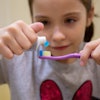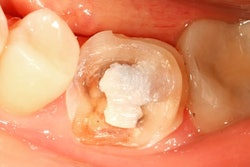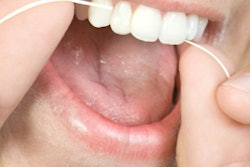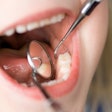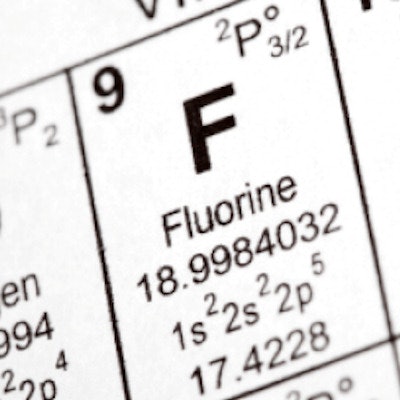
Silver diamine fluoride (SDF) has been shown to reduce the bond strength of composite to dentin, but SDF does not have that same effect on resin-modified glass ionomer, according to research presented on March 22 at the 2018 American Association of Dental Research (AADR) meeting in Fort Lauderdale, FL.
"The most intriguing aspect of this research was discovering how technique-sensitive adhesive systems in dentistry are and how the introduction of a new material may drastically alter their bonding efficacy," presenter Paul Lutgen, a third-year dental student at the University of Washington School of Dentistry, told DrBicuspid.com. "Finding potential solutions in terms of which techniques result in the greatest bond strength was particularly interesting because of the clinical implications for the patients we see."
 Paul Lutgen is a third-year dental student at the University of Washington.
Paul Lutgen is a third-year dental student at the University of Washington.To test the bond strength of resin-modified glass ionomer to dentin, the researchers prepared coronal disks from 40 extracted caries-free teeth. They treated half of the disks with deionized water and the other half with 38% SDF.
After allowing the disks to dry, the researchers treated the surfaces with either polyacrylic acid (Ketac Conditioner, 3M) or phosphoric acid (Universal Etchant, 3M). Finally, they placed a layer of resin-modified glass ionomer (Fuji II LC, GC America) before testing the microshear bond strength of the disks.
Neither the application of SDF nor the etching technique used significantly affected the bond strength of resin-modified glass ionomer to dentin. As a result, using the glass ionomer in this way may be a reliable method to increase bond strength for teeth treated with SDF, the researchers noted.
"When we took a closer look at what was going on, it was clear that the alkaline pH of SDF was interfering with the self-etching adhesive, and so etching or conditioning SDF-treated dentin seems to reacidify the substrate in addition to providing micromechanical retention, leading to greater bond strengths," Lutgen said.
To increase bond strength, Lutgen recommended rinsing SDF-treated teeth for 15 seconds, then etching with phosphoric acid before bonding. Dentists can also use a diamond bur or cover SDF-treated dentin with a thin layer of resin-modified glass ionomer before placing a definitive restoration, he noted.
"If [resin-modified glass ionomer] is used in this way, etching or conditioning results in similar bond strengths," he said. "It really becomes a preference for the dentist."
